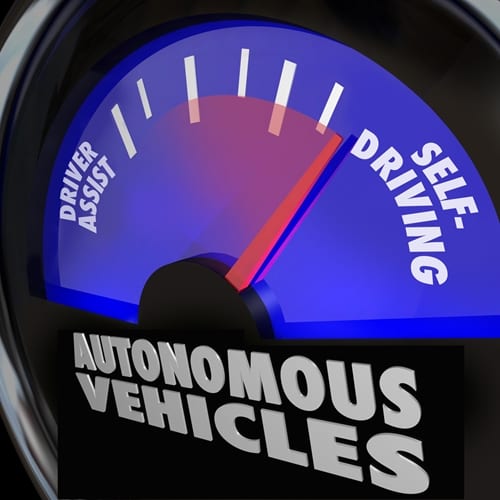It's safe to say that everyone would like highways to be as safe as possible, and whether you're in the commercial diving or the aeronautical industry, we all have to use the roads to get to our workplaces. Many safety experts believe that accident frequency will diminish once fully autonomous cars are available for purchase.
Yet despite scientists' and government authorities' beliefs, the public still isn't convinced that driverless vehicles will lend greater protection to those of us who use the streets on a daily basis, new survey data reveals.
"Most Americans doubt the safety benefits of fully autonomous cars."
3 in 4 don't trust fully autonomous cars
Nearly three-quarters of Americans – 74 percent – are skeptical that fully autonomous cars will reduce the frequency with which car accidents occur, according to a recent global poll conducted by Deloitte, a consulting and advisory services firm. Respondents in 17 countries were polled, and participants in the U.S. were among the least likely to believe that driverless vehicles would reduce crashes. Even more skeptical were individuals from South Korea, 81 percent of whom doubted their effectiveness. Nearly 80 percent of consumers from Japan felt the same way.
Even though fully autonomous vehicles may seem like a futuristic reality, these types of cars are already here, only not in significant numbers just yet. In fact, the National Highway Traffic Safety Administration reported late last year that it plans to expedite the production of automobiles with automatic features, including those where vehicles can communicate with one another. Along with the Federal Motor Carrier Safety Administration and the National Safety Council, the Transportation Department believes it's possible to effectively end deadly car accidents completely within 30 years.
"Our vision is simple – zero fatalities on our roads," said outgoing U.S. Transportation Secretary Anthony Foxx in October. "We know that setting the bar for safety to the highest possible standard requires commitment from everyone to think differently about safety – from drivers to industry, safety organizations and government at all levels."
Safety officials believe that the swiftness with which automatic safety features are being implemented into today's vehicles – like brake assist and blind-spot monitoring – will help bring about fewer highway fatalities, perhaps sooner rather than later.
"Nearly two-thirds expect to feel trepidation in the early stages."
Still, a number of Americans aren't fully on board. In a separate survey, nearly two third of respondents – 63 percent – said it will be awhile before they feel safe when riding in a fully automated car, Reportlinker discovered in its poll.
Expert: Motorists will warm up to driverless features eventually
Craig Giffi, Deloitte vice chairman and the firm's automotive industry leader, indicated that motorists may change their sentiment over time, because currently, autonomous features are still pretty unfamiliar to many people.
"To win consumers' trust, automakers will need to integrate limited self-driving and advanced-safety features into new product offerings steadily over time to introduce people to the technology, demonstrate the improvement for vehicle safety and develop a proven track record," Giffi explained.
No one knows for sure when fully autonomous vehicles will be commercially available. That said, automatic safety functions in new automobiles are increasingly common. If you or employees are using a company car that has some of these features but you aren't sure how they work, the National Safety Council has a website that can help. See for yourself at MyCarDoesWhat.org.

